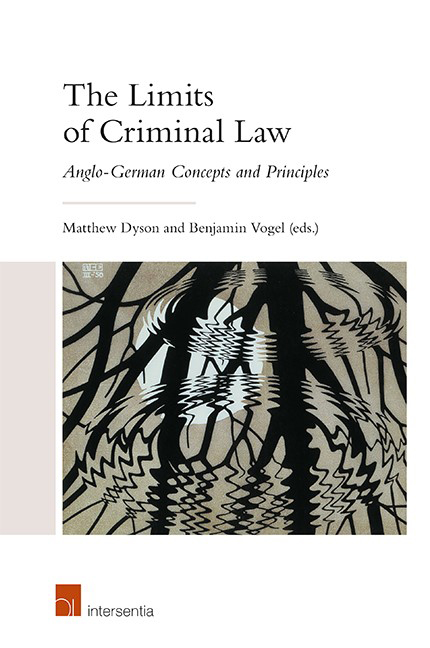Book contents
- Frontmatter
- Preface
- Contents
- List of Cases
- List of Abbreviations
- List of Contributors
- Chapter 1 Introduction
- PART I CORE PRINCIPLES OF CRIMINAL LAW
- PART II CRIME AND TORT
- PART III CRIME AND MEDICAL
- PART IV CRIME AND REGULATION
- PART V ADMINISTRATIVE SANCTIONS
- PART VI ALTERNATIVE ENFORCEMENT
- PART VII COUNTER-TERRORISM
- PART VIII CRIME AND INTELLIGENCE
- PART IX CONCLUSION
- Index
- About the Editors
Chapter 15 - Administrative Sanction Law in Germany
Published online by Cambridge University Press: 11 February 2021
- Frontmatter
- Preface
- Contents
- List of Cases
- List of Abbreviations
- List of Contributors
- Chapter 1 Introduction
- PART I CORE PRINCIPLES OF CRIMINAL LAW
- PART II CRIME AND TORT
- PART III CRIME AND MEDICAL
- PART IV CRIME AND REGULATION
- PART V ADMINISTRATIVE SANCTIONS
- PART VI ALTERNATIVE ENFORCEMENT
- PART VII COUNTER-TERRORISM
- PART VIII CRIME AND INTELLIGENCE
- PART IX CONCLUSION
- Index
- About the Editors
Summary
INTRODUCTION
OBJECT OF ANALYSIS
Today's risk society controls crime not only by means of core criminal law. The prevention and prosecution of crime are also supplemented by other legal regimes, such as civil law, administrative sanction law, preventive police law, intelligence law, money-laundering law, and even the laws of war. These alternative legal regimes can go beyond the limits of criminal law in terms of efficiency. They can also, however, bypass the limits of criminal law set by safeguards on fundamental rights and civil liberties – safeguards for which citizens have fought long battles since the Enlightenment, and which are not applied in these other areas of law. Thus, the limits of criminal law and the limits of these other crime control regimes are of great practical importance, pose new and challenging research questions, and provide new insights into the ‘limits of criminal law’.
With regard to this plethora of alternative regimes of legal control besides criminal law, this chapter will focus on one of the oldest extensions of the criminal law arsenal: the field of ‘administrative sanction law’, also called ‘criminal administrative law’ or ‘administrative criminal law’. In Germany, this type of law is called Ordnungswidrigkeiten law and is codified in a separate code called the Ordnungswidrigkeitengesetz (OWiG), which can be translated as the ‘law on regulatory offences’. This code defines an Ordnungswidrigkeit, as distinguished from a ‘crime’, as an illegal and reprehensible act covered by a provision, which enables the act to be sanctioned by the imposition of a Geldbuße. The term Geldbuße (administrative fine) used in this definition of Ordnungswidrigkeit is deliberately different from the term Geldstrafe (criminal fine), which is used in criminal law, in order to expressly describe a non-criminal administrative fine.
This positivistic definition provides clear legal certainty in national law. It does not, however, clearly indicate the characteristic features of these offences.
From a wider international and comparative perspective, terms such as ‘administrative sanction law’, ‘criminal administrative law’ or ‘administrative criminal law’ describe offences that are on the borderline between criminal law and administrative law. They constitute legal regimes with (generally) light punitive sanctions and other less serious consequences and with more attenuated safeguards than traditional criminal law (especially because the sanctions are imposed by administrative bodies).
- Type
- Chapter
- Information
- The Limits of Criminal LawAnglo-German Concepts and Principles, pp. 301 - 332Publisher: IntersentiaPrint publication year: 2020

